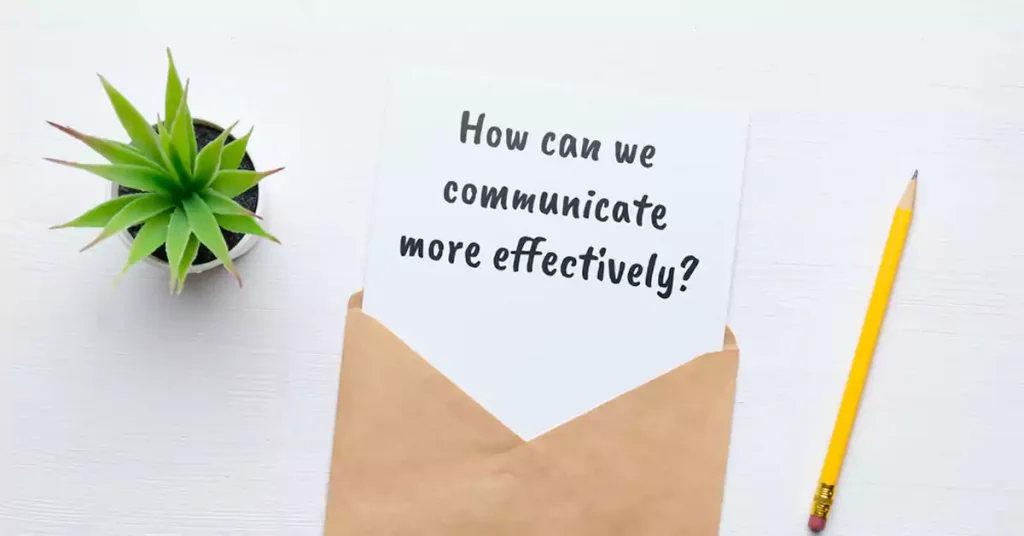It is widely understood that effective business communication skills in business enables businesses to thrive. Communication is a necessity in every gathering or relationship, including a business relationship.
Communication with a friend is done by sending a message and expecting feedback, right? This is the same procedure for communicating in the business world.
Regardless of any business organization, business communication skill is necessary because workers must communicate with their colleagues, workers must communicate with their customers, and workers must communicate with their superior, all in a bid to achieve one set goal in the company.
Business communication skills are one of the numerous skills workers acquire with time to enable effective communication with other workers, their superiors, or prospective customers.
Business communication is mainly a soft skill, which every worker should possess, they are basic daily skills that you can initially see as unimportant, but they come in handy in a work environment.
Oftentimes, everyone feels communication is simple, but one major thing you should understand and also have in mind is that as a result of pure communication, there has been a case of lack of understanding, which always leads to conflict in an organization.
Almost every system is witnessing great change as the day goes by, and communication is not left out in this change.
The skills workers may have utilized to effect communication a few years ago differs from those now. Therefore as a worker, upgrade your soft skills to avoid misunderstanding. This article will help you with insights on effective business communication for 2022
11 Effective Business Communication Skills

Collaboration Skills
In the business world, no worker is an island, and every department needs the other departments to work effectively. This is where collaboration comes in.
Collaboration is the process of two or more people working together with the sole aim of achieving a certain goal.
It’s a known fact that individual differences exist; some workers have this belief of carrying out tasks and doing things alone without the “help or support” from others. This ideology cannot work in a corporate setting or an organization.
As earlier stated, every department needs the other departments in the organization to work effectively and efficiently. When one department fails to carry out its delegated duties, it affects the productivity of the other departments.
For instance, when the sales department has made little or no sales in a week and also put in little or no effort in marketing the firm’s products and services, the productivity of the accounting department will fail as there will be no record of inflow of cash, this will, in turn, disrupt their duties of recording daily transactions.
Collaboration skills can equate to synergy; as a worker in an organization, you are expected to give suggestions, raise questions, subtly and meaningfully criticize and finally encourage your team members during team meetings.
This shows you’re fully involved and interested in achieving organization set goals.
When an organization has effective collaboration skills, they are stronger and tend to map out strategies that are effective in aiding the achievement of organizational goal
Negotiation Skills
This skill is very important for organizations, especially in decision-making. Negotiation skills involve discussion aimed at suggesting options, convincing clients, and building rapport with other individuals interested in the business.
Negotiation skills help the organization to win clients and also make them stay and seek investors and new partners for the company.
Very effective negotiation skill is of great importance to every employer. Through possession of this skill, an employer can strike great deals with an organization which will, in turn, earn the employer more points and promotions in the long run.
Diplomacy Skills
This skill enables a professional to handle and build relationships with other professionals. A professional with diplomacy skills can easily go through difficult communication situations with other professionals, colleagues, supervisors and clients.
As a professional, your diplomatic skills will tell you how you handle conflicts in the corporate environment. This skill will help a professional to be assertive and persuasive during negotiations and collaboration with colleagues, clients, or investors.
Public Speaking Skills
An employee with proper public speaking skills has the edge over another who may likely not possess this same skill. Most jobs require the skill of speaking in front of an audience to engage the audience, who may be potential investors.
Through public speaking skills, an employee can convince a whole audience by means of storytelling or engaging them in trending topics. All an organization needs to have as a public speaker is one who is bold, who is an orator with good command of English.
Businesses such as networking need this public speaking skill to thrive. Else there’d be no record of success in the business.
A public speaker needs to also learn the art of patience, knowing fully well that it’s not easy to convince adults who have a mind and opinions of their own.
Written Communication
Writing has been one of the major sources of communication since time memorial. Every business, from start to finish, needs information through writing.
Information Such as daily or weekly reports, proposals, letters, emails, reviewing documents, etc. All the above listed depend on writing skills to be accomplished.
It is necessary that every individual possess writing skills, no matter the career choice or office they occupy.
Through writing skills, other writings can be reviewed for errors and corrected. Through effective writing skills, an organization can determine if they are making a profit or loss.
Presentation Skills
This is the ability of an individual to plan and organize the best ways to disseminate information to an audience and also engage them. This is a very effective form of business communication because it helps to deliver engaging presentations to a set audience.
Presentation skills enable professionals to organize a meeting while utilizing the best methods to disseminate information and engage the audience without being a bore.
These methods include oral speaking, visual representation (power points), and non-verbal interaction.
Active Listening Skills
It is a funny but true fact that not everyone is a good listener. If you possess all other communication skills and you’re not a good listener, then communication is not happening.
Active listening aids and fosters understanding amongst workers. When a colleague or employer sends a message to another who is the receiver, it is expected of the receiver to listen attentively and understand the message to avoid noise in communication or misunderstanding.
Delegation Skills
In every workplace, the general reason why everyone is there is to work and achieve a certain organizational goal.
To keep the organization running smoothly, each has his own job description, but the process of allocating duties meant for the right person is known as Delegation skill.
Delegation skill helps the managers, Human resources, and leaders in the workplace to direct, control, and overseas tasks, projects, and duties in the organization.
Delegation skills are said to be efficient when every staff carries out duties directed at them without clashing with the duties of other departments. This means each staff member is fully aware of the responsibilities designated for him.
Delegation skill is very important in an organization because it promotes orderliness. Managers and leaders are to delegate duties that are within the strength of the department or staff to avoid too much workload on the part of the staff.
Feedback And Input Skills
As earlier stated, communication does not stop at the dissemination of information. It extends to understanding and feedback.
For the purpose of this sub-topic, let’s talk about feedback.
Effective communication relies heavily on feedback from the receiver to prove that information successfully got to the receiver. Every organization relies on feedback to measure performance and productivity; professionals rely on feedback gotten from their superiors to determine objectives and also improve performance where needed.
While giving feedback, it is necessary to have an input mapped out; with feedback comes input. Input from staff can be professional advice, ideas, words of encouragement, and its likes.
Let’s put it this way, feedback helps you to know where the “Is and Ts” were not dotted and crossed, while input helps you to dot the “Is” and cross the “Ts.”
Non-Verbal Communication Skills
Non-verbal communication skills have to do with communication using body language, signs, and gestures. There are events where a colleague may not need to communicate verbally with you.
At this point or situation, you have to be observant and smart enough to understand the information being passed to you. Oftentimes, this method of business communication arises in situations where trouble can easily erupt.
For instance, non-verbal communication may arise in the face of danger. A fellow colleague can give eye contact with another, indicating there’s danger. The ability to deduce the reason for this gesture will definitely save a lot of people from danger.
Non-verbal communication may also arise during professional gatherings that require decorum, silence, and professionalism maintenance, so instead of disrupting a meeting, you can communicate non-verbally through body language, gestures, or even eye contact.
Conflict Resolution & Decision Making Skills
As humans, conflicts will always arise in every organization or place we find ourselves. However, the ability to settle conflicts cannot be overemphasized.
It is important that as a staff of an organization, conflict resolution skills should be one of the major skills you should possess. Settlement of conflicts without being biased with fairness is a sign that you’re maintaining a great level of professionalism.
Professionals utilize this skill in building alternative approaches, generating and evaluating strategies to avoid a future occurrence of conflict, and ensuring a peaceful approach to achieving organizational goals and objectives.
Decision-making skills help managers and staff, in general, make choices in the face of confusion and alternatives. The ability to make the right choices that will benefit the organization in the long run, at the advent of confusion, is a great skill.
This skill enables managers and even staff of the organization to first analyze the various options available, weigh the options to know their pros and cons, access the options to determine which is best to meet organization goals, and analyze which will yield positive results within a time range or a budget.
When the best decision is being made, it always benefits the entire organization.
I hope this article will be very helpful in your quest for business communication skills in 2022.
If yes, please endeavor to share this article with family and friends. However, if your answer is no, please do leave your complaints in the comments section. We will do well to respond as soon as possible.
Also read about about office ethics.

